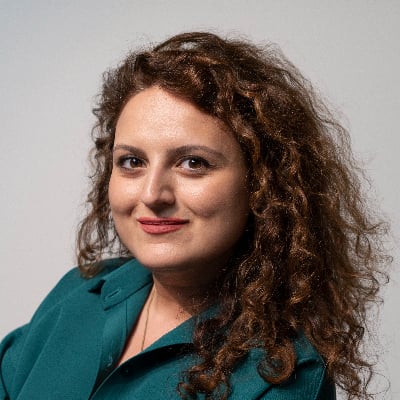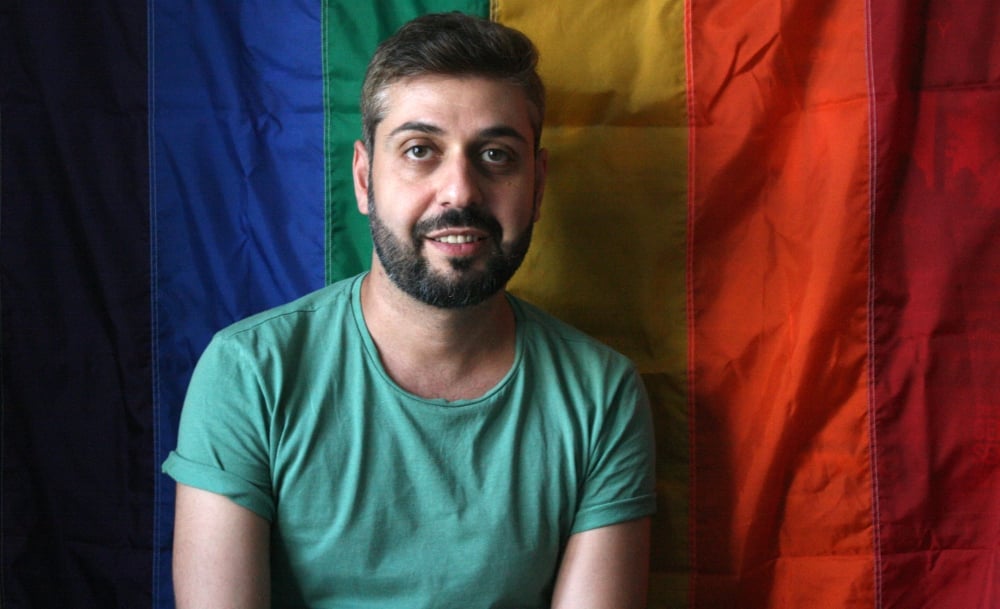Days ago, the European Court of Human Rights issued a ruling against Armenia in the case “Minasyan and Others v. Armenia.” The court found that Armenia violated essential human rights, specifically the right to respect for private and family life and the prohibition of discrimination.
Armenia has to pay 28,000 euros in non-pecuniary damages and 1,067 euros in court costs to 14 citizens who applied to the ECHR.
In 2014, the Iravunk newspaper published an article titled “They Serve the Interests of International Homosexual Lobbying,” which included a section called “Black List of Enemies of the Nation and the State.” The article suggested zero tolerance towards these individuals.
Discriminated RA citizens, unable to protect their violated rights in Armenian courts, applied to the European Court of Human Rights in 2015.
Media.am spoke with Mamikon Hovsepyan, a citizen who applied to the ECHR, a human rights defender of the LGBT community, and head of communication at Pink NGO.
Mamikon, The story that began after the 2014 Eurovision Song Contest seemed to snowball. I would like to ask you to go back and understand what happened eleven years ago.
The events unfolded in several stages. In 2014, when Conchita Wurst won Eurovision, a wave of homophobia surged in Armenia. Armenian jury members Anush and Inga Arshakyan admitted in an interview that they misjudged the contest’s winner, transgender performer Conchita Wurst, due to their personal biases.
They made insensitive comments equating homosexuality with mental health issues and displayed discrimination toward those with mental health problems.
Days after the interview, Azatutyun radio station organized a press conference on Facebook, and many users wrote their questions and criticisms about the opinions expressed by the singers. Well, I was among them.
After that, the Iravunk newspaper published the article we appealed to the European Court of Human Rights about, explicitly targeting those users. They compiled a “blacklist” and included all the users who had written reviews. Even our social media accounts were linked to the article.
After that, many people, including me, received letters threatening and insulting us.
As a result, some individuals on the “black list” were forced to deactivate their Facebook accounts. There were 60 people on the list, and 16 of us chose to take legal action to restore our violated rights. However, the judicial system ruled that the “Iravunk” newspaper was exercising its right to freedom of speech. After losing in all local courts, 14 of us appealed to the European Court in 2015.
What Does the ECtHR’s Decision Record?
The decision of the ECHR states that the state violated citizens’ rights to respect for their private and family life, along with the absolute right not to be subjected to discrimination.
The court emphasized that the constitutional prohibition against discrimination, along with the Armenian Civil Code’s ban on insults, is insufficient to protect individuals from homophobic hate speech. In other words, the court found that the dignity and honor of the individuals targeted by such publications were harmed, and the civil laws of the Republic of Armenia cannot adequately address this harm. The court stated that the state must implement measures to effectively protect against hate speech, including establishing mechanisms to prevent incitement to discrimination.
What was the current legal situation in Armenia before the new regulations, which the Court mandated the country to implement?
Hate speech is not regulated in any form in Armenia. While calls for violence have been criminalized, this measure has not entirely resolved the issue. The anti-discrimination law has been under discussion for more than ten years. In 2017, when the government introduced the draft equality law, it was notably incomplete. Unfortunately, this area has not progressed significantly in recent years. I hope that new decisions will help address many of these problems.
This decision is significant because judges can no longer view hatred, incitement to violence, or discrimination as forms of freedom of speech.
There is a precedent, and decision-makers should exercise caution. Furthermore, the state is committed to creating appropriate regulations to protect citizens.
In the near future, the government plans to create an action plan to implement the assumed obligations. At that time, it will become clearer what legislative changes or training programs are being developed.
You mentioned that Conchita Wurst’s victory in Armenia in 2014 sparked a wave of homophobia. How much has our society changed since then?
Typically, disasters, wars, and significant negative events adversely affect society, increasing violence and discrimination.
The war has undeniably impacted society, leading to an increase in both violence and hate crimes. However, it’s essential to recognize that changes have occurred over time; today’s situation is different from ten years ago. One significant factor to consider is the generational change. Each generation brings new perspectives and approaches to society, shaping our outlook for the future.
What changes have occurred in the media over the years? To what extent has the media become more non-discriminatory and tolerant?
Many media outlets are created to serve the interests and views of political forces or businessmen. Like ten years ago, there are few neutral and independent media in Armenia. Based on my observations, I must conclude that, ten years ago, neutral media outlets covered LGBT issues more extensively than they do today. This situation is surprising, as one might expect the opposite to be true. Unfortunately, it is not. Nowadays, independent media typically publish only one to two articles on this topic each year, and this usually occurs only in response to specific events or news.
Sadly, these information opportunities sometimes manifest as tragic events.
In contrast to the media, social media has begun to foster more discussions on this topic. Today, one can find more neutral and tolerant opinions here than a decade ago.
What are the main omissions and mistakes the media makes regarding this topic?
The media often makes significant mistakes in their coverage. For example, when discussing topics such as cruelty and violence, they frequently include graphic images, which can hurt society. Additionally, journalists often use discriminatory language in their reporting.
Another issue is that the media should provide a platform for silenced voices.
It is essential to recognize that abusers and those who perpetuate discrimination have ample opportunities to make their voices heard, while LGBT individuals often struggle to express themselves. When the media presents discussions that include both sides, it does not guarantee true equality. The focus should not be merely presenting opposing viewpoints; instead, it should center on a group—specifically, individuals or communities facing discrimination and isolation and cannot live their lives fully. This is a critical topic that the media needs to address.







